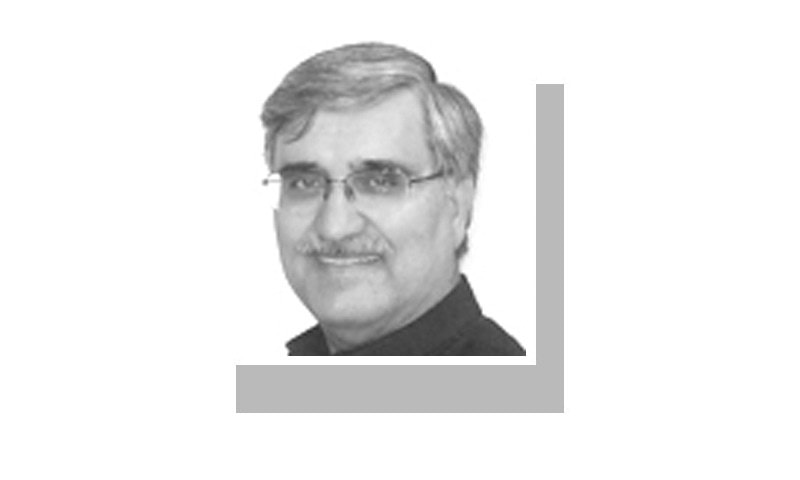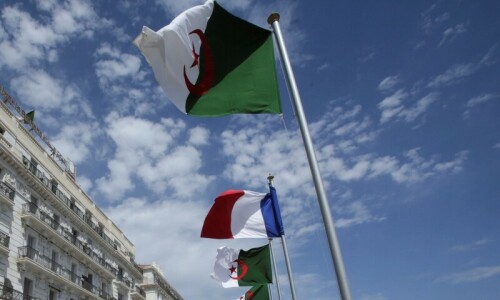
LOCAL governments are important for the entire country but carry special significance for the largest province in the federation — Punjab. Although a certain degree of scepticism surrounds the advent of the new era of elected LGs after a gap of some eight years, the completion of the last phase of LG elections in Punjab on Dec 22 offers a chance to make a fresh beginning.
According to 2015 estimates, Punjab has a population of around 101 million. If Punjab was a country, it would rank as the 12th most populous country in the world with all European and African and most Asian and Latin American countries ranking below it. Despite the quality of governance being relatively better because of a variety of reasons, there are ample signs that a province as diverse and large as Punjab, despite all the energy of the incumbent chief minister, cannot continue to be efficiently run on the basis of a centralised model of governance.
For a number of years south Punjab has been sending soft but unmistakably clear signals that it is not happy with the current state of affairs. There has been a persistent demand for a separate Seraiki province and a province consisting of the former Bahawalpur state. The former Punjab Assembly passed resolutions to this effect too and many political parties including the PPP not only support these demands, but have also organised their parties along the lines of south and north Punjab.
Decentralisation is the key sentiment behind the demands for division of Punjab. Irrespective of the merits of the creation of new provinces in Punjab, an effective LG system with real devolution of political, administrative and financial powers and responsibilities and in the true spirit of Article 140-A of the Constitution may be able to address many, if not all, grievances of not only south Punjab but also all such far-flung districts that feel central Punjab or Lahore receives all or most of the attention of the provincial government.
A centralised model of governance cannot work for a province as diverse and large as Punjab.
Across the world in general, and Pakistan in particular, parting with powers and devolving them to the local level has always been the hardest aspect of creating effective LGs. Provincial governments in Pakistan have resisted the revival of elected LGs since the last ones ceased to exist in 2009. While the cause of democracy and good governance is served by dispersing authority, in fact creating multiple centres of power, the trend in developing societies has been to accumulate power in a few hands.
It took a persistent and assertive Supreme Court to make the reluctant provincial governments take steps to operationalise Article 140-A of the Constitution which calls for the establishment of LGs with devolved political, administrative and financial responsibility and authority.
Whether or not sweeping of the election of LG heads by the PML-N, the current ruling party in Punjab, will make it easy for the provincial government to devolve powers to the new LGs remains to be seen. If Punjab is able to bite the bullet and succeeds in creating empowered LGs, it will usher in a new phase of deepened democracy and better governance in the province.
Over the years, Punjab has created some formidable ‘authorities’ controlled by the provincial government and it is in the process of creating some more which may significantly dilute the powers of the LGs.
For example, the Lahore High Court, in its judgement of April 2015 in the Lahore signal-free corridor case discussed at length the powers of the Lahore Development Authority and found that several sections of the LDA Act, 1975, either partly or fully, “‘usurp, trump, encroach, dilute and abridge the powers, responsibility and authority devolved to the elected representatives of the Local Government System under Article 140A through the Punjab Local Government Act” and therefore, declared these ultra vires to Articles 9, 14, 17 and 25 and offensive to Articles 32, 37(i) and 140A of the Constitution.
Although the operative part of the judgement which suspended the execution of the signal-free corridor was reversed by a subsequent Supreme Court order, the scholarly discourse on the significance, powers and sanctity of the LGs contained in the detailed judgement should be carefully studied by the federal government and all the provincial governments in Pakistan. In fact, this judgement should be made a part of the compulsory reading by all LG heads.
Under the Punjab Local Government Act, 2013, district education authorities and district health authorities are to be established whose chairmen and CEOs will be appointed by the provincial government. Apparently, these authorities may undercut the powers of the elected LGs in the two critical service delivery areas which may lead to discontent and even litigation. It will be a better idea for the provincial government to give a bigger role and greater authority to the elected heads of the LGs in the working of the two authorities instead of controlling them from the provincial capital.
Now that the provincial ruling party is going to overwhelmingly control the LGs, it should be easier for the provincial government to devolve its powers and create powerful and effective LGs. Peace, stability, attention to less developed areas, greater access to remote areas and addressing the sense of deprivation among poorer sections of the population can be better tackled under an effective LG regime.
Although the provincial government had been allocating financial resources to south Punjab in proportion to its population during the past eight years, many feel that actual spending may not be less than the allocations. An effective LG system can keep better track of their spending. The Punjab government, despite challenges, has provided better governance in many areas. The challenge is to take good governance to the grass roots through effective LGs.
The writer is president of Pildat — a public policy think tank of Pakistan
Published in Dawn, December 27th, 2016









































